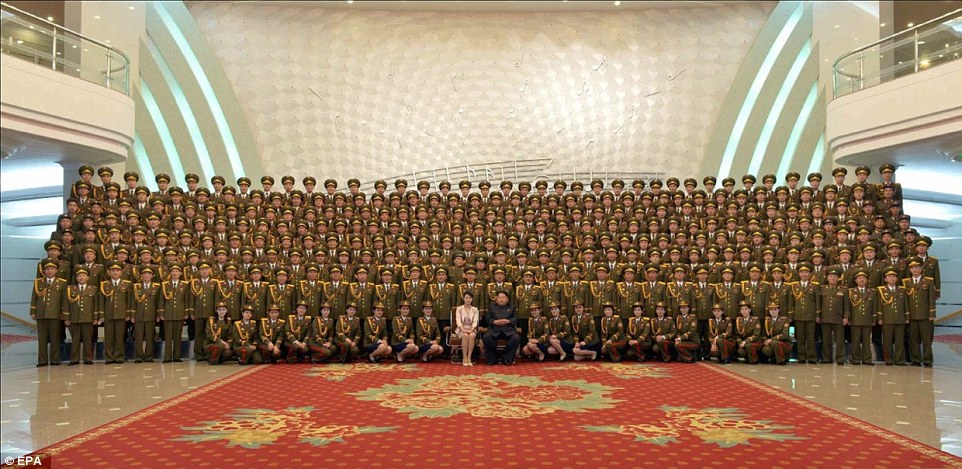The hypocrisy of "aid" to Africa (there's a reason the fiercest defenders of aid are invariably white) by Siji Jabbar
Does it piss you off the way Africa is written about in connection with development aid? It does me. It's not so much the mere fact of writing about Africa and aid that does it, but more the way Africa is portrayed as a continent whose inhabitants survive purely on the benevolence and generosity of the West, continent as bottomless pit, a place that takes and takes and takes, and what is omitted from this portrayal of Africa.
Development aid ought to be criticised and phased out, but it's annoying when critics take aim at the wrong target. It's even more annoying when the critic is African. The most recent article I came across on the subject was a one republished here and here with the title: "Why Western Aid to Africa Is a Waste".
I'll take a look at what's left out of most articles about aid-to-Africa in a minute, but first a brief look at an idea put forward in the article that does a huge disservice to Africans. The idea is that Western donors come from societies that have scaled Maslow's hierarchy of needs, and now exist at the very top where the only needs they're concerned about are those of self-actualisation, whereas Africans are at the bottom of the pyramid, struggling to satisfy their basic needs of food, water, shelter and warmth, needs Western donors haven't had to think about in a long time.
This is to write about Europeans and Africans as homogeneous masses, rich Westerners, poor Africans. Aside from the argument that people tend to span multiple layers of the hierarchy at the same time, Google shocking poverty in Europe and you will quickly discover that there are millions of Europeans who have a lot more on their minds than self-actualisation. But even more dangerously misleading is the idea that all or most Africans exist at the lowest level of Maslow's hierarchy of needs, all struggling desperately to survive, so that Western donors and their development projects are "attempting to pull peasant minds still grappling with physiological needs up to self-actualization when they haven't yet figured out how to achieve safety, love/belonging or self-esteem."
It is because of writing like this that many people I have come across in Europe find it hard to grasp the idea of a socio-economically diverse African population, and even harder to believe there are ordinary middle class people in Africa with similar concerns and a similar sense of responsibility to that of middle class people elsewhere in the world (and I'm not talking about the Africa Bank of Development's patronising redefinition of "middle class" as those spending between $2 and $20 per day. Just normal middle class people who have been to university, hold down regular jobs, occasionally go on vacations and worry about getting their kids into good schools.). In the last few decades, the size of this middle class has contracted and expanded with the fortunes of the different countries on the continent, and when things have gotten particularly bad in any country, those who could leave did so, but the class does exist, and didn't just spring into existence with the publication of that Africa Bank of Development report.
When Europeans encounter Africans abroad, do they think we'll all refugees? I imagine some must. On some occasions when I've reminisced about my own childhood, I've been told I must have been among the "upper class", whatever that is. All the middle class professionals, the doctors, engineers, architects, university lecturers and professors, lawyers, all these people don't exist in the minds of many people outside Africa because they did not grow up on a media diet that depicted such Africans. Thus, outside of the music pages, Africans are either desperately poor, helpless, gullible and easily exploited, or they're obscenely rich because they're corrupt. Europeans and Westerners may be seeing a wider variety of Africans in their newspapers and magazines since the Economist published its mea culpa in 2011 and "Africa Rising" became the new mantra, but it's probably going to take another couple of decades of balanced representation of Africans in the international media (and in popular culture) for the conditioning to be checked and reversed.
Okay, let's talk about development aid.
Development aid is not free money
There's a type of argument known as 'Proof by assertion'. It is an argument in which a proposition is repeatedly restated regardless of contradiction, and continues to be repeated until challenges dry up and the assertion is accepted as truth, even if it is a lie. That's what has happened to the aid-to-Africa story. It has been told and keeps being told in a way that seems calculated to paint a false picture of Africa and its relation to aid. And this is what the blog post about Western aid being a waste is guilty of.
When a European or American grows up hearing and reading about aid to Africa, year in year out, it's understandable if this repeated association affects the way they see Africans, in the abstract or in day-to-day life. I wonder if it's a continuous source of bafflement to such individuals that no African they meet ever appears grateful for all this money given to Africa by generous Westerners. Or maybe Europeans believe they shouldn't expect gratitude because the money is a form of penance for the sins visited on Africans by their forefathers.
The word "aid" itself is a misnomer, hiding the fact that development aid is not free money. When you read articles like this one in Forbes magazine, you are led to believe it's free, but it isn't. Unfortunately, this is the way aid is usually written about, so people in the West (but also in Africa) think their respective governments are "giving" Africa and other developing regions money to waste as they desire because, I don't know, Westerners are too generous for their own good or something. It's a nice story, and no doubt, it makes people in "donor" countries feel good about themselves. But it's not quite true.
Here's Dambisa Moyo (author of Dead Aid) writing in the Wall Street Journal: Even after the very aggressive debt-relief campaigns in the 1990s, African countries still pay close to $20 billion in debt repayments per annum, a stark reminder that aid is not free. In order to keep the system going, debt is repaid at the expense of African education and health care. Well-meaning calls to cancel debt mean little when the cancellation is met with the fresh infusion of aid, and the vicious cycle starts up once again.
By the 1980s, money was being lent to countries all over the world. High interest rates were increasing to levels where debts became impossible to pay. “Almost inevitably, higher international interest rates led to worldwide recession” (Moyo, 2009, p.18). As countries were defaulting their loans, the only solution seemed to be through restructuring the debt owed. Since government involvement was perceived to be the cause of growth decline, privatized institutions such as the IMF’s Structural Adjustment Facility provided more loans to countries to pay off previous debts.
CONTINUE READING.....................HERE http://www.thisisafrica.me/opinion/detail/19902/the-hypocrisy-of-aid-to-africa-there-s-a-reason-the-fiercest-defenders-of-aid-are-invariably-white#.UafzL1_3sgA.facebook
-------------
interesting read.
------------



